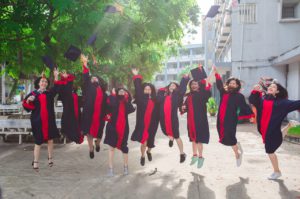Embarking on the journey from medical school to residency in the United States is an exciting yet challenging endeavor for Indian-origin MBBS final-year students. The transition involves not only adapting to a new healthcare system but also acclimating to a different cultural and professional landscape. In this blog, we’ll explore some practical tips and insights for MBBS students to help you prepare for residency in US hospitals.
Understand the US Residency System:
Before diving into the residency application process, take the time to understand the US medical education system. Familiarize yourself with the structure, requirements, and expectations of the residency program. Resources like the Educational Commission for Foreign Medical Graduates (ECFMG) can provide valuable information.
Start Early with ECFMG Certification:
The ECFMG certification is a crucial step for international medical graduates. Begin the process early, as it involves multiple steps, including exams like the USMLE (United States Medical Licensing Examination). Adequate preparation is key to passing these exams and ensuring a smooth certification process.
Build a Strong Application:
Craft a compelling residency application that highlights your skills, experiences, and achievements. Emphasize any relevant clinical experiences, research projects, or extracurricular activities. Tailor your resume to align with the specific requirements of the programs you’re applying to.
Networking Matters:
Networking can open doors in the medical field. Attend conferences, seminars, and workshops to connect with professionals in your chosen specialty. Join online forums and social media groups where you can interact with current residents and gain insights into the residency experience.
Consider Observerships or Externships:
If possible, undertake observerships or externships in US hospitals. This hands-on experience will not only enhance your clinical skills but also provide you with a firsthand understanding of the US healthcare system. Many programs appreciate applicants with prior exposure to the US medical environment.
Prepare for Interviews:
Residency interviews can be nerve-wracking, but adequate preparation can ease the process. Practice common interview questions, articulate your strengths, and be ready to discuss your experiences. Familiarize yourself with the program you’re interviewing for, showcasing your genuine interest.
Cultural Competency Matters:
Cultural competency is crucial when working in diverse healthcare settings. Understand the cultural nuances of the US healthcare system, including communication styles, patient interactions, and team dynamics. Adaptability and open-mindedness will set you apart as a candidate.
Stay Informed about Visa Processes:
As an international medical graduate, navigating the visa process is integral. Stay updated on visa requirements, processing times, and any policy changes. Seek guidance from experienced professionals or legal experts to ensure a smooth transition.
Embrace Continuous Learning:
Medicine is a dynamic field, and staying updated on the latest advancements is essential. Engage in continuous learning by attending workshops, and webinars, and staying connected with medical literature. Showcase your commitment to ongoing education in your application.
Seek Support from Peers and Mentors:
The journey to residency can be challenging, but you’re not alone. Connect with fellow international medical graduates and seek guidance from mentors who have successfully navigated the process. Their insights and support can be invaluable during this transformative period.
Conclusion:
Transitioning from an MBBS final-year student to a resident in a US hospital is a significant step that requires careful planning and preparation. By understanding the intricacies of the US residency system, building a strong application, networking, gaining hands-on experience, and embracing cultural competency, you can position yourself as a competitive candidate. Remember, this journey is not just about acquiring clinical skills; it’s also about adapting to a new culture and contributing to the diverse tapestry of the US healthcare system. Good luck on your residency journey!



